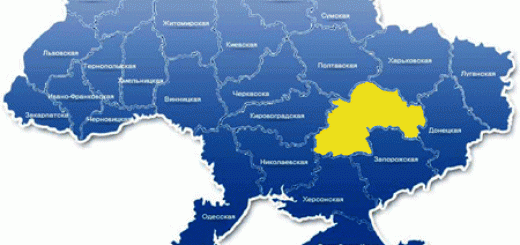Natural disasters
Цілі уроку:
практичні : розвиток мовних компетенцій з теми уроку, розвиток умінь вживання нових лексичних одиниць, розвиток умінь сприйняття іноземної мови на слух і використання почутої інформації , розвиток уміння вести діалог – інтерв’ю ;
розвиваючі : розвиток мислення, уваги, пам’яті, уміння інтерпретувати прочитаний текст;розвивати вміння використовувати ЛЄ у власних міні- висловлюваннях ; розвивати в учнів самостійне мислення , увагу ;. витягувати з тексту необхідну інформацію ; висловлювати припущення , прогнозувати ; спростовувати твердження або погоджуватися з ними ;
освітні : розширення кругозору , розвиток умінь працювати з інформацією , формування комунікативної компетенції, розвиток загально навчальних умінь ;
виховні: підтримувати високий рівень мотивації до вивчення англійської мови; вчити розуміння явищ та особливостей розвитку природи. Виховувати розуміння цінності людського життя , взаємодопомоги та дбайливого ставлення до природи. Формувати в учнів потребу і здатність до критичного мислення
Форми роботи: фронтальна , індивідуальна , групова , по парам .
Обладнання: комп’ютер , мультимедійний проектор , картки із завданнями.
Хід уроку
- Warming up.
- Teacher:
- Get ready for the lesson. Put your books, exercise books and diaries on the desk. Stand up!
- Good morning! Sit down, please.
- I am very glad to see you! How are you?
Форма работи T —>Cl.
Teacher: What date is it today?
Pupil: Today is the … of February.
Teacher: What day is it today?
Pupil: Today is ….
Teacher: What’s the weather like today?
Pupil: It’s a winter day. It is … and ….
Teacher: What is your favourite weather? Why do you like this kind of weather?
Teacher: Do you find climate changes for the better or for the worse?
The topic of our lesson today is “Natural disasters”. We’ll discuss different natural disasters happening in the world, learn the new words, make the dialogues-interviews based on the text we read the previous lesson.
- Consolidation of the new lexics.
1) Look at the pictures and name natural disasters. (slides)
2) Match natural disasters with the definitions.
Drought – a period of time with no rain
Flood – large amount of water that covers an area which is usually dry
Tornado – a violent wind storm which consists of tall column of air spinning around very fast
Tsunami – a huge wave caused by an earthquake which flows onto land
Earthquake – a shaking of the ground
Cyclone – a violent tropical storm in which the air goes round and round
Avalanche – a large mass of snow falling gown the side of a mountain
Hurricane – an extremely violent wind or storm
3) Answer the questions: -Which of the disasters are common in our country?
– Which is the most serious for you?
4) (Slide) Consolidation of the verbs. Give the meaning to the verbs.
Fear –боятися, боятися
Cover – закривати, покривати, перекривати
Leave – їхати, залишати, залишати
Drown – тонути
Snow – заносити снігом
Crack – давати тріщину, тріскатися, розколюватися
Collapse – валитися, обвалюватися,
Lose – втрачати, позбавлятися, втрачати, викликати втрату
- Which extreme weather phenomena are the most dangerous? Why?
- Where do they happen most often?
- Which of extreme weather phenomena happen in your area?
- Are people able to resist natural disasters and survive?
III. Individual tasks: WB ex.1 p.39 (4 pupils)
- Check up home task. Short reviews of natural disasters happened recently in the world (presentations of the students)
- 1. Group-work. In the groups of 4-5 pupils make interviews of the people who wrote the reviews in the text “Tsunami disaster”.
- Pair-work.Make up an interview of the person who survived in the disaster.
VI Reading Ex 1 p.39
VII Listening
- A storm chaser Tim Samaras1. Weather is a very dangerous force.
- It can’t have any impact on people’s life.
- Tim Samaras is a scientist.
- Storm chasing is his hobby.
- He is looking for food.
- He hasn’t any problems in his work.
- He is searching for information about mega storms.
- He faces a lot of danger from the weather.
- He hasn’t any equipment .
- He doesn’t like his job at all.
VIII Group work
1) Write as many words as you can
2) Use the verbs in the following sentences in the necessary form to make them complete and define the disaster.
3) (Slide) Match the words from column A with the words from column B to make phrases.
Injured roads
Natural history
Recent bridges
First aid
Cracked waves
Massive people
Collapsed disaster
4) Use the verbs in the following sentences in the necessary form to make them complete and define the disaster.
5) Use these expressions in the sentences
6) Give recommendations to people who suffer from Natural disasters.
- X Home task. Write a letter to your about what he she should do or shouldn’t do during any natural disaster.
- Results of the lesson.
T.: -Thank you very much. Well done!
Your marks are…
The bell has gone. The lesson is over. You are free. Thank you. Good-bye.
Cl – Thank you. Good-bye



